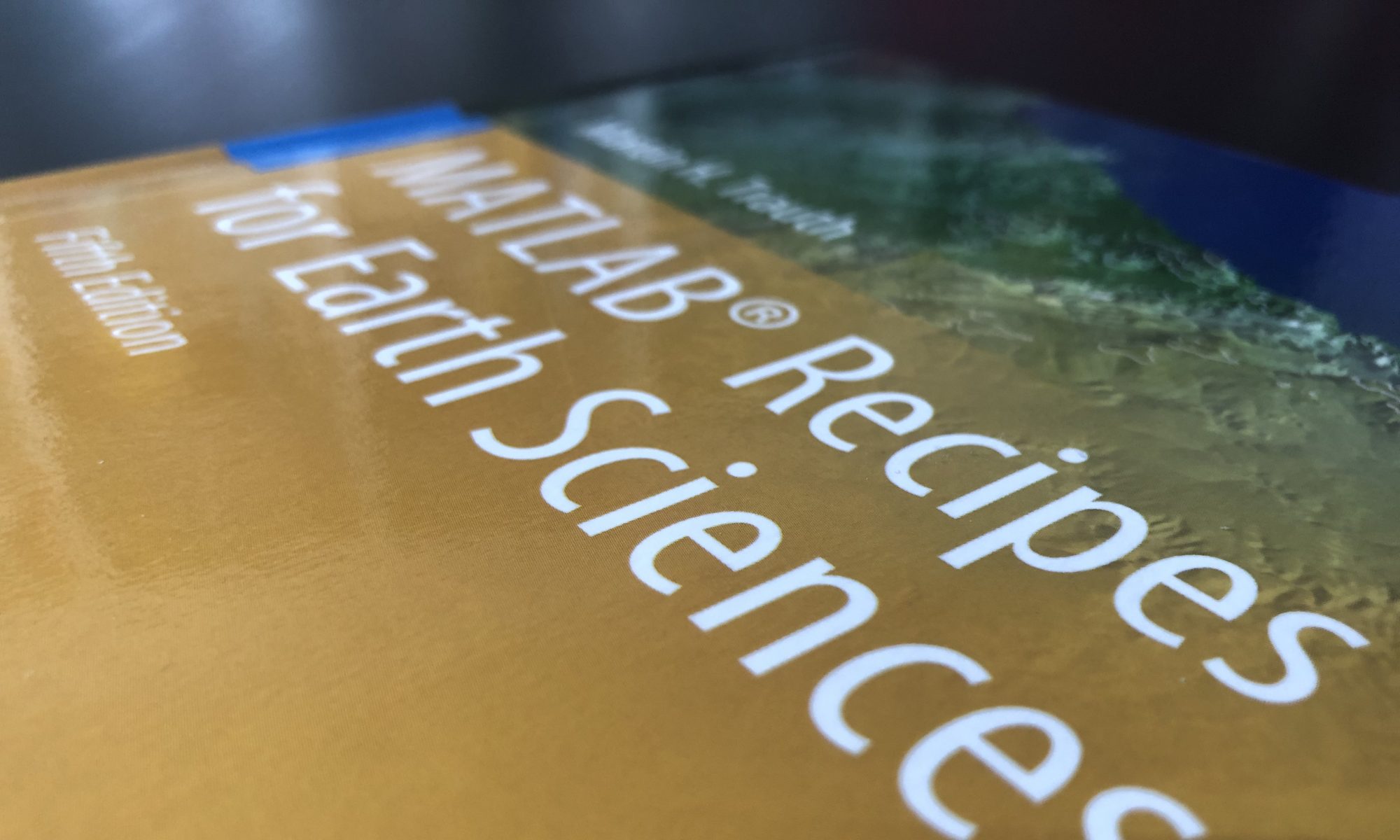
More than 30 years ago, I began teaching compact courses on data analysis in the earth sciences. 20 years ago, I started thinking about writing textbooks. Now there are six textbooks and many different course formats for you. Here is an overview of the current options!
It all started more than 30 years ago when I offered a first course on signal processing with MATLAB to fellow doctoral students in paleoceanography at Kiel University. Since 1996 I teach regular courses in diploma, bachelor’s and master’s courses at the University of Potsdam. And in 2002 I started teaching shortcourses for everyone else, mostly doctoral students and postdocs from elsewhere. The last course was held last fall, with both Python and MATLAB in the same course. I also teach courses in our summer school series with the Volkswagen Foundation, within the framework of the EU ERASMUS+ program and by invitation for graduate schools and research groups worldwide, both in person and online.
Here are the options for you to learn modern methods of data analysis with me, based on the textbooks I published over the last 18 years:
Online training for individuals – Participate in one of the regular Shortcourses on MATLAB & Python Recipes for Earth Sciences in fall every year … as an individual participant. These courses now take place online, which means you don’t incur any travel or accommodation costs. These courses are therefore also virus-free and have a very low carbon footprint! You can follow the course from home or from your office. The courses follow the two books “MATLAB Recipes for Earth Sciences” (Springer 2024) and “Python Recipes for Earth Sciences” (Springer 2024), both with identical content but with MATLAB and Python examples respectively. The course consists of lectures and live coding, there will be time for questions and opportunities to complete assignments. There are, in addition to the books, pre-recorded lectures and live coding sessions, as well as extensive extra material, allowing you to compensate for differences in time zone and non-presence due to other commitments.
Online training for groups – For several years, I have also offered these courses to graduate schools and research teams, for 2–5 days and with programs tailored to the individual needs and interests of the participants. Homework and final exams in the form of small data analysis projects can also be arranged and supervised here so that participants can earn credit for the graduate program. This course format is increasingly successful because participants can design their own program. Here, there is the option of completing the introduction to Python and MATLAB beforehand in ready-made online training courses and, in the actual workshop, after a brief introduction to the desired methods, to address the questions and data of the participants.
Both options are offered either as (a) traditional classes with live lectures, live coding and Q/A or (b) using the flipped-classroom model where participants read the books / watch prerecorded lectures and coding sessions and we go through a Q/A session before we work on exercises / projects together during the live sessions.
Participants will receive assistance in installing and activating the software, as well as copies of the textbooks. Please do not hesitate to contact me if you are interested. I am sure we can find a good solution for your course participation! Please contact me via email trauth@uni-potsdam.de if you need more information on the courses!
These courses were taught, for example, at the U Aberystwyth, U Addis Ababa, U Bremen, U Bratislava, U Ghent, UA Barcelona, BGR Hannover, U Kiel, UC London, LMU München, BGI Bayreuth, U Nairobi, U Köln, U Stockholm, U Amsterdam, NHM Vienna, GNS Science Wellington, Brown U Providence, U Arizona Tucson, U Fribourg (online), Calgary (online) and U Potsdam (both online and in person).

